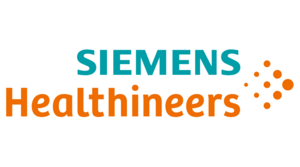Christian Doppler Labor für Angewandte Metabolomics
This CD laboratory is focused on advancing non-invasive imaging techniques to improve the characterization of tumors. Given that tumors continuously evolve due to genetic mutations, it is crucial to develop methods that can track these changes in real time. These innovations aim to enable personalized treatment plans and facilitate continuous monitoring of treatment efficacy, ensuring more targeted and effective care for patients.
Refined molecular tumor characterization for precision medicine
New targeted therapies that focus on gene mutations or specific receptors require increasingly refined molecular tumor characterization. Tumor cell biology is constantly evolving due to ongoing mutations, with some tumor types undergoing rapid genetic changes. As a result, non-invasive diagnostic methods capable of mapping these dynamic changes are of paramount importance. With the expanding array of targeted therapeutics, which allow for personalized and optimized treatment plans, the demand for non-invasive prognostic biomarkers to identify the most effective therapy for each patient is also growing. Positron emission tomography (PET) is a well-established imaging technique in oncology, widely available in hospitals, yet its full potential remains underutilized. The genetic alterations in tumors generate distinct metabolic patterns, which can be detected through PET, providing valuable insights for more precise and tailored treatment.
Non-invasive tumor characterization validates innovative PET imaging using classical methods
We compare PET data with histopathological examinations, analyses of therapy- and prognosis-relevant genetic mutations, as well as clinical data on survival and treatment response. The goal is to develop a non-invasive "in vivo pathology" that leads to an individualized therapy algorithm and allows for continuous monitoring of its success. To achieve this complex objective, a supervised machine learning (ML) algorithm is applied. This innovative method aims to identify specific PET patterns triggered by mutations in the tumor and, moreover, to predict treatment responses.
The results are validated using preclinical mouse models. Genetic mutations are induced in xenografts (mice that have been implanted with human tumor cells) via CRISPR/Cas9, and the PET patterns found in patients are then investigated to see if they can be reproduced in the mouse model. Additionally, the imaging approach is prospectively validated with liquid biopsies—tests that detect tumor components and tumor markers in the blood. Blood samples are collected shortly before PET imaging, and clinical data such as survival and treatment response are gathered to correlate with the PET patterns. The overarching goal is to develop an integrative diagnostic algorithm to non-invasively determine the tumor biology and, consequently, the best possible initial therapy and its ongoing monitoring.
To develop the described pipeline, three tumor entities were selected, each presenting different challenges for the method to be investigated: colorectal carcinomas and diffuse large B-cell lymphomas—both examined using F18-2-Fluoro-deoxyglucose (FDG)-PET—along with prostate carcinomas, examined using prostate-specific membrane antigen (PSMA)-PET. In the future, the study will be extended to include breast cancer and non-small-cell lung cancer.
The CDL for Applied Metabolomics has duration from 01.11.2018 to 31.10.2025

